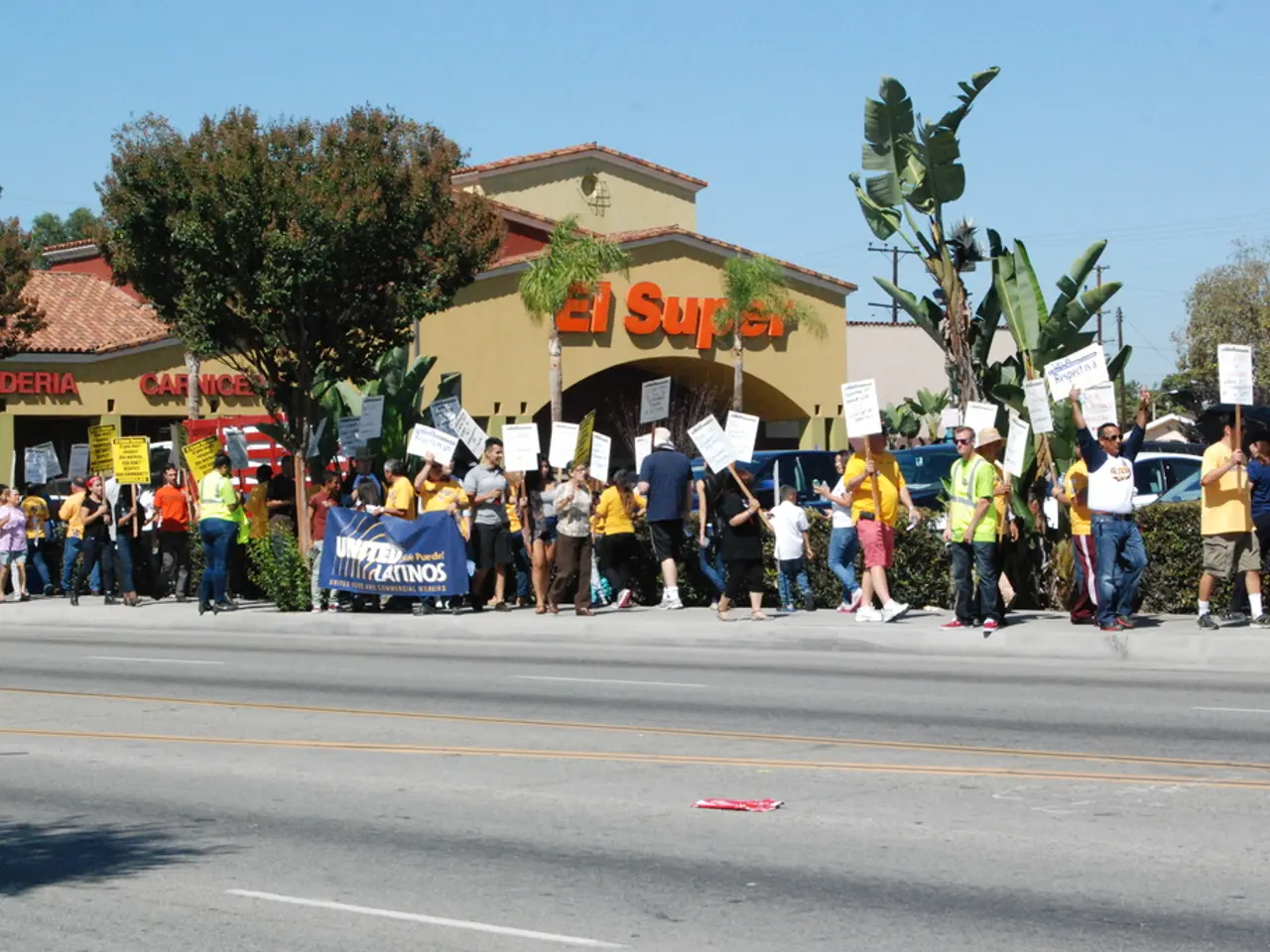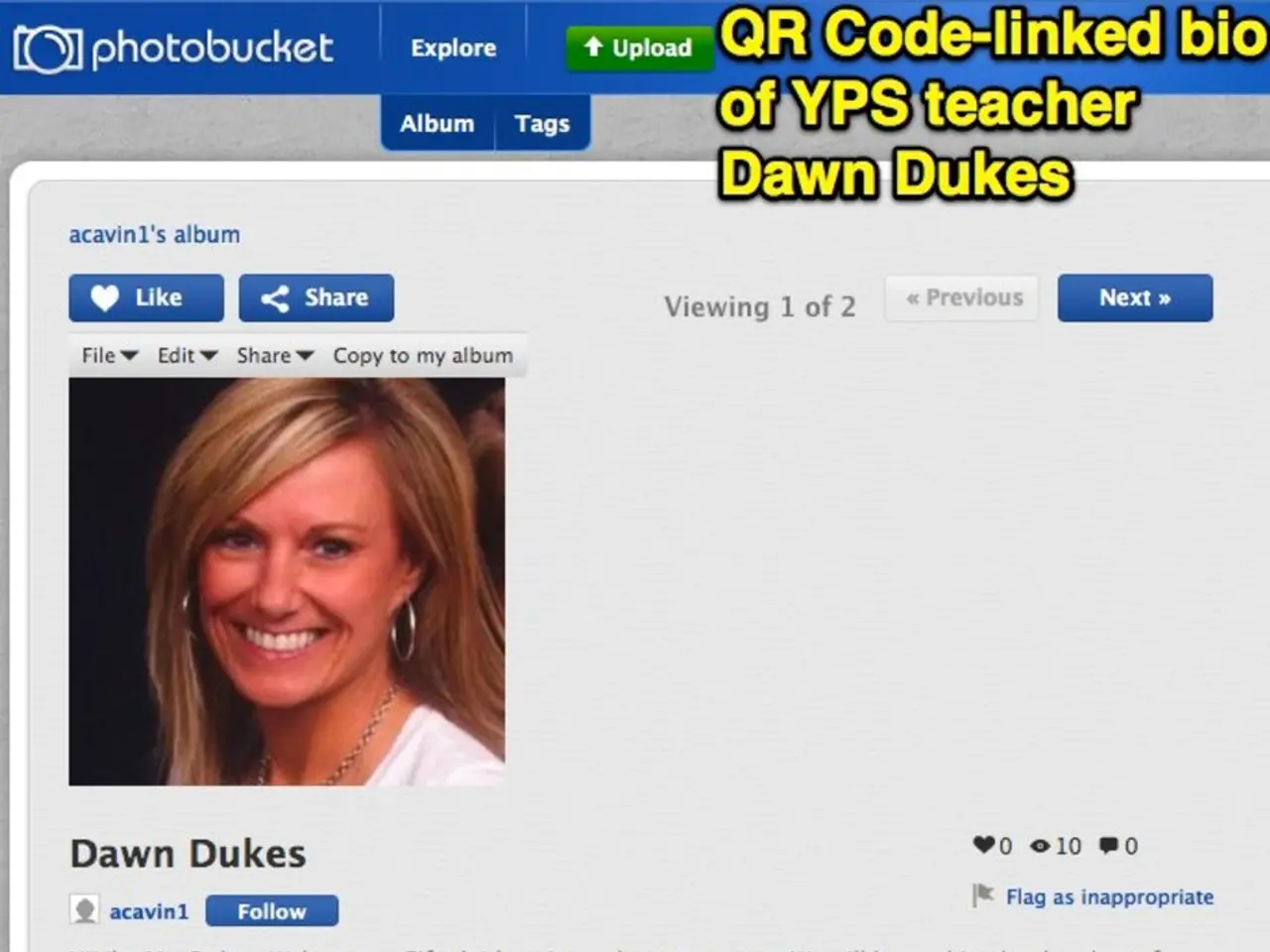"Immediate Recognition Demanded": UK Pressed to Acknowledge State of Palestine without Delay
In the coming months, the UK government is set to make a significant foreign policy decision, with plans to recognise the state of Palestine before the United Nations General Assembly (UNGA) in September. This move, however, comes with conditions that aim to advance a viable two-state solution and improve humanitarian conditions in Gaza [1].
The Labour government, guided by international law, is navigating this delicate issue, balancing support for Israel’s right to self-defence with humanitarian concerns and the political viability of a two-state solution [2]. Prime Minister Keir Starmer and other UK political leaders are approaching this issue cautiously, acknowledging the complex dynamics at play [2].
The UK's conditions for recognition centre around key steps for both Israeli and Palestinian actors. Hamas must disarm, cease hostilities, and refrain from participating in Gaza's government. The Israeli government, on the other hand, is expected to take substantive steps to end the humanitarian crisis, allow UN humanitarian aid, agree to a ceasefire, and commit to no annexations in the West Bank [1].
The UK government's approach has garnered diverse responses. Some religious and political leaders, such as the Bishop of Southwark, Christopher Chessun, find it disappointing that recognition has been made conditional [1]. Others, like the Anglican Bishop of Southwark, urge the government to move ahead with recognition regardless of the facts on the ground.
Opponents of the decision include the families of British hostages in Gaza, who fear that recognition would give Hamas an incentive to prolong the war. However, the decision to recognise Palestine cannot be challenged, as it was taken using prerogative powers at the government's disposal [1].
The decision to recognise Palestine is likely to be made by the Foreign Commonwealth and Development Office (FCDO) in late September [1]. The British Prime Minister, Keir Starmer, is under pressure to recognise a state of Palestine without delay, but the government remains committed to a measured stance that supports peace and stability while mitigating extremism and suffering [1][2].
A YouGov poll found that more than half of Britons (51%) consider Israel's actions in Gaza to be unjustified, while just one in five (21%) believe they are justified [1]. This public sentiment is likely to influence the government's decision, as well as the reactions of religious and political leaders.
Peers and leading lawyers have written to Attorney General Lord Richard Hermer, warning that the move could break international law [1]. The former diplomat, Edmund Fitton-Brown, suggests that UNGA could be the "least problematic forum for the upgrade" of Palestine's status [1].
Sir Vincent Fean, a former consul general to East Jerusalem, has urged the Prime Minister to drop conditions for recognition of Palestine, believing that recognition will likely alter the UK government's approach to issues beyond recognition, such as ensuring Israeli policy in Gaza and the West Bank changes [1].
The shadow Attorney General, Lord David Wolfson, criticises the government's argument that recognition of a foreign state is only a political issue [1]. As the UK government prepares to make its decision, these diverse opinions and complex dynamics will continue to shape the discussion around recognition and the future of Palestine.
[1] BBC News, "UK to recognise Palestine if conditions met, says Johnson", 2021. [2] The Guardian, "Keir Starmer under pressure to recognise Palestine without delay", 2021.
- The UK government's planned recognition of Palestine at the United Nations General Assembly (UNGA) is expected to occur in late September, with conditions chiefly focusing on Israeli and Palestinian actions in the Middle East region, specifically in the West Bank and Gaza.
- Prime Minister Keir Starmer and other political leaders in the UK are grappling with a multi-layered issue as they navigate the delicate balance between international law, Israel's right to self-defense, humanitarian concerns, and the viability of a two-state solution.
- The decision to conditionally recognize Palestine has met with varied responses, with some religious and political leaders viewing it as disappointing, while others, like the Anglican Bishop of Southwark, are advocating for immediate recognition, regardless of the on-ground situations.
- A significant part of the discussion surrounding the UK's decision to recognize Palestine revolves around public sentiment, as evidenced by a YouGov poll indicating that over half of Britons view Israel's actions in Gaza as unjustified, while just one in five consider them justified.





